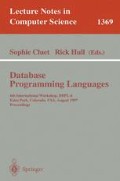Abstract
We consider the problem of finding the least witness of a composite number. If n is a composite number then a number w for which n is not a strong pseudo-prime to the base w is called a witness for n. Let w(n) be the least witness for a composite n. Bach [7] assuming the Generalized Riemann Hypothesis (GRH) showed that w(n) < 2log2 n. In this paper we are interested in obtaining upper bounds for w(n) without assuming the GRH.
Burthe [15) showed that w(n) = O ∈(n 1/(8√e)+ε) for all composite numbers n which are not a product of three distinct prime factors. For the three prime factor case he was able to show that w(n) = O ∈(n 1/(6√e)+∈). We improve his result to show w(n) = O ∈(n 1/(8√e)+∈) for all composite numbers n except Carmichael numbers n = pqr for which v 2(p − 1) = v 2 (q − 1) = v 2 (r − 1). For the special Carmichaels we use an argument due to Heath-Brown to get w(n) = O ∈(n 1/(6.568√e)+∈).
We conjecture w(n) = O ∈(n 1/(8√e)+∈) for every composite number n and look at open problems. It appears to be very difficult to settle our conjecture.
Research done while at The Institute of Mathematical Sciences.
Preview
Unable to display preview. Download preview PDF.
References
L. Adleman and M. Huang, Primality testing and two dimensional Abelian varieties over finite fields, Lec. Notes in Math, 1512, Springer-Verlag (1994).
L. Adleman and F. T. Leighton, An O(n 1/10.89) primality testing algorithm, Math. Comp. 36 (1981) 261–266.
L. Adleman and K. S. McCurley, Open problems in number-theoretic complexity-II, in: L. M. Adleman and M. D. Huang (eds.), Algorithmic Number Theory, LNCS 877, Springer-Verlag, Berlin (1994), 291–322.
L. Adleman, C. Pomerance and R. Rumely, On distinguishing prime numbers from composite numbers, Ann. of Math. 117 (1983) 173–206.
W. R. Alford, A. Granville and C. Poinerance, There are infinitely many Carmichael numbers, Ann. of Math. 140 (1994) 1–20.
W. R. Alford, A. Granville and C. Pomerance, On the difficulty of finding reliable witnesses, in: L. M. Adleman and M. D. Huang (eds.), Algorithmic Number Theory, LNCS 877, Springer-Verlag, Berlin (1994), 1–16.
E. Bach, Analytic methods in the analysis and design of number-theoretic algorithms, MIT Press, Cambridge, Mass. (1985).
E. Bach and L. Huelsbergen, Statistical evidence for small generating sets, Math. Comp 61 (1993), 69–82.
R. Balasubramanian and S. V. Nagaraj, Density of Carmichael numbers with three prime factors, Math. Comp. 66 (1997), 1705–1708.
P. Beauchemin, G. Brassard, C. Crepeau, C. Goutier and C. Pomerance, The generation of random numbers that are probably prime, J. Cryptology 1 (1988) 53–64.
D. Bleichenbacher, Efficiency and security of crypto-systems based on number theory, Ph.D Thesis, Swiss Federal Institute of Technology, Diss. ETH No. 11404, Zurich 1996.
W. Bosma and M. P. van der Hulst, Primality testing with cyclotomy, Ph.D Thesis, Faculteit Wiskunde en Informatica, Univ. of Amsterdam (1990).
D. A. Burgess, On character sums and primitive roots, Proc. London Math. Soc. 12 (1962) 179–192.
D. A. Burgess, On character sums and L-series II, Proc. London Math. Soc. 13 (1963) 524–536.
R. J. Burthe, The average witness is 2, Ph.D Thesis, University of Georgia (1995).
R. J. Burthe Jr., Uper bounds for least witnesses and generating sets, Acta Arith. 80 (1997) 311–326.
R. J. Burthe Jr., The average witness is 2, Acta Arith. 80 (1997) 327–341.
H. Davenport, Multiplicative Number Theory, 2nd Ed., (Springer Verlag, New York, 1980).
I. Damgaard, P. Landrock and C. Pomerance, Average case error estimates for the strong probable prime test, Math. Comp 61 (1993) 177–194.
A. Granville, Some conjectures related to Fermat's last theorem, in: Proc. of the First Conference of the CNTA, Alberta, April 1988, pp. 177–192, (Walter de Gruyter, Berlin 1990).
A. Granville, On pairs of co-prime integers with no large prime factors, Expo. Math. 9 (1991), 335–350.
D. R. Heath-Brown, Personal Communication, April 1997.
N. Koblitz, A Course in Number Theory and Cryptography Graduate texts in Mathematics, (Springer Verlag, New York 1987).
S. Konyagin and C. Pomerance, On primes recognisable in deterministic polynomial time, in: R. L. Graham and J. Nesetril (eds.), Mathematics of Paul Erdos, Springer-Verlag, Berlin (1997).
H. W. Lenstra, Jr., Miller's primality test, Info. Proc. Lett. 8 (1979) 86–88.
G. L. Miller, Riemann hypothesis and tests for primality, J. Comput. System Sci. 13 (1976), 300–317.
R. Peralta and V. Shoup, Primality testing with fewer random bits, Comp. Compl. 3 (1993), 355–367.
R. Pinch, Personal Communication, April 1997.
M. O. Rabin, Probabilistic algorithm for testing primality, J. Number Theory 12 (1980), 128–138.
G. Tenenbaum, Introduction to analytic and probabilistic number theory, Cambridge Studies in Advanced Mathematics No. 46, (Cambridge University Press, 1995)
Author information
Authors and Affiliations
Editor information
Rights and permissions
Copyright information
© 1998 Springer-Verlag Berlin Heidelberg
About this paper
Cite this paper
Balasubramanian, R., Nagaraj, S.V. (1998). The least witness of a composite number. In: Okamoto, E., Davida, G., Mambo, M. (eds) Information Security. ISW 1997. Lecture Notes in Computer Science, vol 1396. Springer, Berlin, Heidelberg. https://doi.org/10.1007/BFb0030409
Download citation
DOI: https://doi.org/10.1007/BFb0030409
Published:
Publisher Name: Springer, Berlin, Heidelberg
Print ISBN: 978-3-540-64382-1
Online ISBN: 978-3-540-69767-1
eBook Packages: Springer Book Archive

